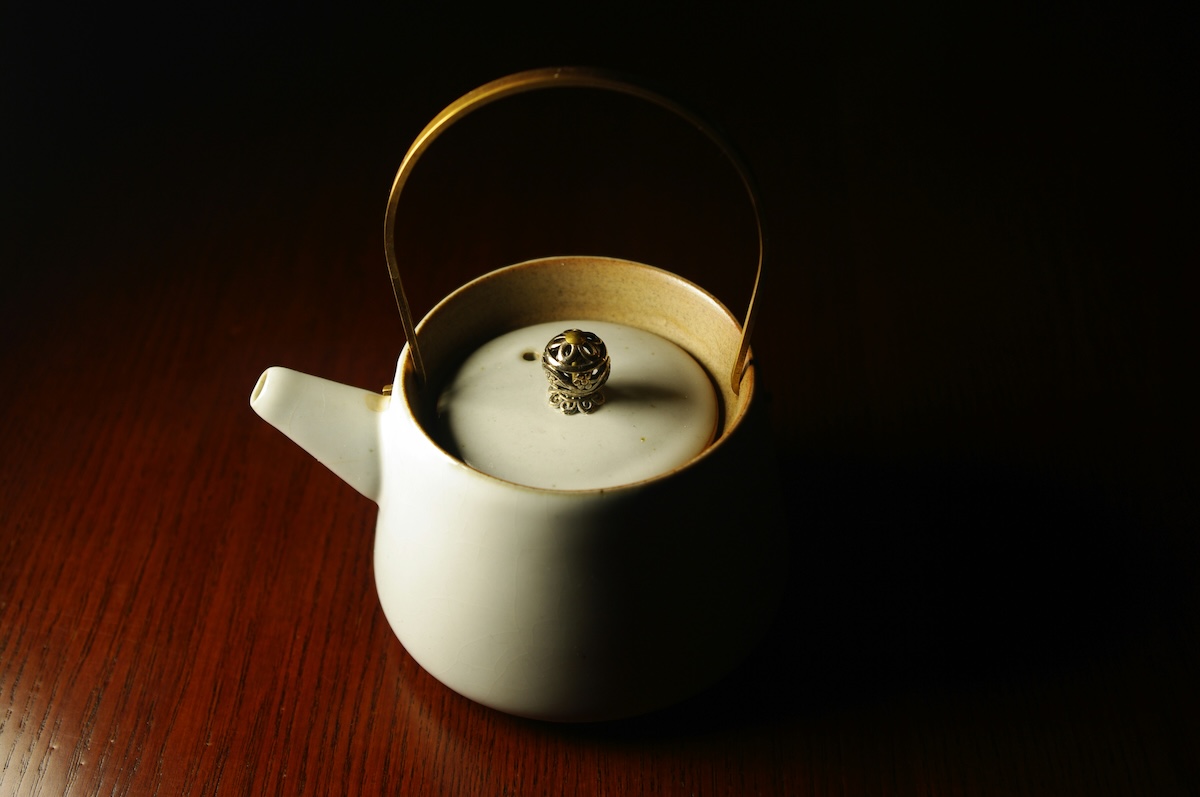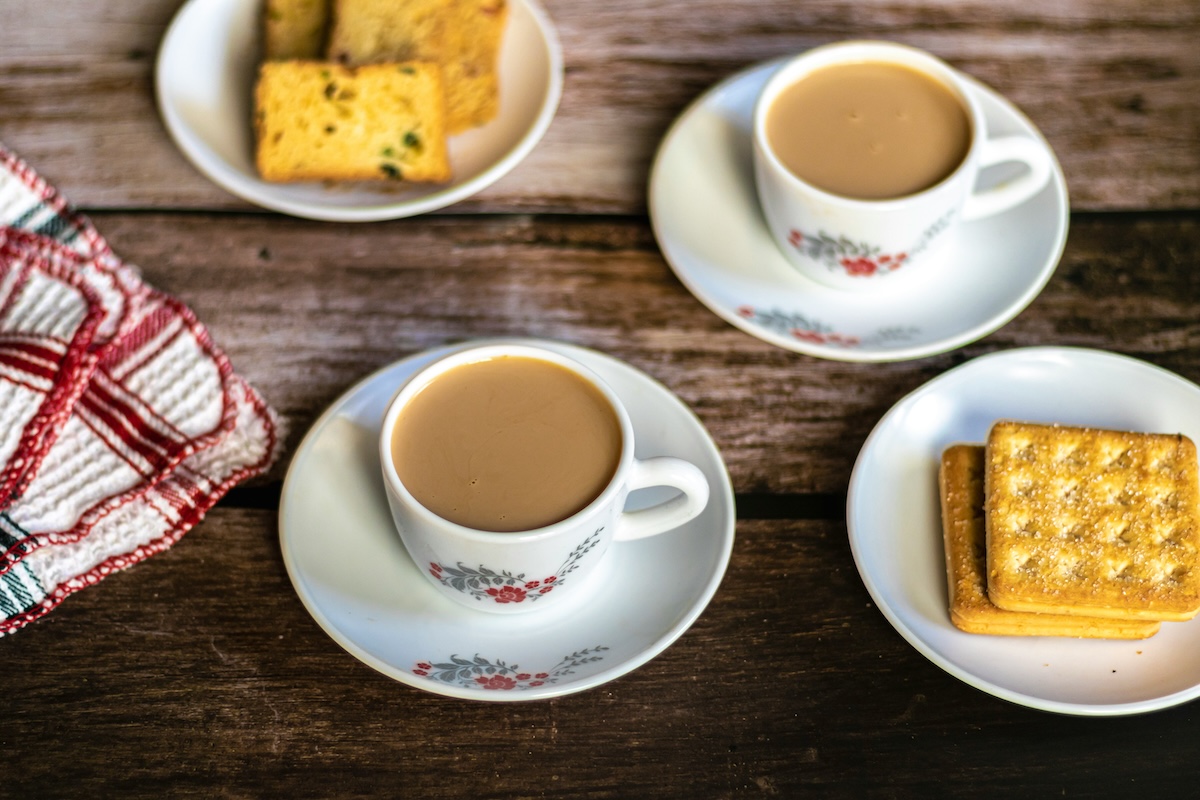Best Plant Milk for Tea: No-Curdle Guide (2026)
This article contains affiliate links to help keep this site free. If you purchase through these links, I may earn a small commission at no extra cost to you. Read our full disclosure policy.
Looking for the perfect plant milk for your tea? The wrong choice can curdle, separate, or ruin your cuppa. We tested oat, soy, almond, and coconut milk in black tea, green tea, and chai to find which ones actually work. Here's what we discovered.
🏆 Quick Answer: Best Plant Milk for Tea
Oat milk is the best all-around choice for tea - it doesn't curdle, has a creamy texture, and works in everything from Earl Grey to chai. Soy milk is the runner-up for black tea if you want extra protein.

Why Does Plant Milk Curdle in Tea?
Before we dive into recommendations, let's understand the problem. Plant milk curdles in tea because of:
- Acidity: Tea is acidic (especially black tea), which causes proteins in plant milk to separate
- High temperature: Boiling hot tea can "shock" cold plant milk
- Tannins: Tea contains tannins that interact with proteins in plant milk
- Low protein content: Some plant milks (like almond) have so little protein they separate easily
The good news? Some plant milks are specifically formulated to handle hot beverages without curdling.
🥇 #1: Oat Milk - The Tea Champion
Best for: All teas - black tea, green tea, Earl Grey, English Breakfast, chai, matcha lattes
Why it wins:
- Doesn't curdle: Natural starches in oats help it stay smooth in hot tea
- Creamy texture: Makes tea feel luxurious and satisfying
- Mild sweetness: Complements tea flavors without overpowering
- Versatile: Works in everything from delicate green tea to robust black tea
- Barista editions available: Specifically made for hot beverages
Perfect pairings:
- Earl Grey with oat milk - the creaminess balances bergamot
- English Breakfast - creates a smooth, traditional "builder's tea"
- Chai latte - oat milk's natural sweetness enhances spices
- Matcha latte - creamy without masking the green tea flavor
💡 Pro Tip: Look for "barista edition" oat milk - it's formulated to stay smooth in hot drinks and won't split even in very hot tea.
🛒 Shop Oat Milk for Tea
🥈 #2: Soy Milk - The Protein Pick
Best for: Black tea, English Breakfast, chai
Why it works:
- High protein content: Creates structure that resists curdling
- Neutral flavor: Doesn't compete with tea flavors
- Good in hot liquids: Stands up to high temperatures
- Nutritious: 7-9g protein per cup adds staying power
- Widely available: Easy to find in most stores
Want to learn more about soy milk's benefits? Check our complete guide on whether soy milk is healthy.
Best practices with soy milk:
- Let your tea cool for 30 seconds before adding soy milk
- Choose "unsweetened" for traditional tea
- Works especially well in strong black teas
- Great for chai because it won't separate with spices
Perfect pairings:
- Strong black tea (Assam, Ceylon)
- English Breakfast - classic "milk tea" taste
- Chai - protein helps bind with spices
- Iced tea - stays smooth when chilled
🛒 Shop Soy Milk for Tea
🥉 #3: Almond Milk - Use with Caution
Best for: Iced tea, cold brew tea, very lightly steeped tea
The challenge: Almond milk is notorious for curdling in hot tea because it has very low protein content and can't handle high acidity or heat.
When it works:
- Iced tea: Temperature isn't a problem when cold
- Weaker tea: Less acidic = less curdling
- Barista versions: Some brands make stabilized almond milk for hot drinks
How to prevent curdling with almond milk:
- Let tea cool to lukewarm before adding milk
- Use "barista" or "barista blend" almond milk
- Add milk first, then pour tea (reduces shock)
- Choose less acidic teas (white tea, rooibos)
For a complete comparison, see our oat milk vs almond milk guide.
Perfect pairings (if using almond milk):
- Iced black tea or iced chai
- Rooibos tea (naturally low acid)
- White tea or very light green tea
🛒 Shop Almond Milk for Tea
#4: Coconut Milk - The Tropical Option
Best for: Chai, Thai tea, matcha lattes, herbal teas
Why use it:
- Distinctive flavor: Adds tropical notes to tea
- Creamy texture: Especially if using coconut milk beverage (not canned)
- Works in hot tea: Generally stable at high temperatures
- Natural sweetness: Reduces need for added sugar
Important note: Use coconut milk beverage (in cartons) for tea, not canned full-fat coconut milk which is too thick and oily.
Perfect pairings:
- Chai - coconut complements Indian spices beautifully
- Thai tea - traditional pairing
- Matcha latte - tropical twist on classic
- Rooibos - naturally sweet flavor combo
🛒 Shop Coconut Milk for Tea
🍵 Plant Milk by Tea Type
| Tea Type | Best Plant Milk | Why It Works |
|---|---|---|
| Black Tea (English Breakfast, Earl Grey) | Oat or Soy | Handles acidity and heat without curdling |
| Green Tea | Oat (light) or Almond | Subtle flavor won't overpower delicate tea |
| Chai | Oat or Coconut | Creamy texture complements spices |
| Matcha Latte | Oat or Coconut | Creates smooth, frothy texture |
| Iced Tea | Any (Almond works here!) | Cold temperature prevents curdling |
| Rooibos (Red Tea) | Almond or Coconut | Low acidity = less curdling risk |
| White Tea | Oat or Almond | Very delicate - needs subtle milk |

5 Tips to Prevent Curdling in Tea
1. Temperature Matters
Let your tea cool for 30-60 seconds after brewing before adding plant milk. The shock of boiling liquid on cold milk causes separation.
2. Add Milk First (Sometimes)
For very hot tea, try adding plant milk to your cup first, then pouring tea over it. This gradual temperature change reduces curdling.
3. Choose Barista Blends
Barista editions of oat and almond milk are formulated with stabilizers that prevent separation in hot drinks - similar to what works in coffee.
4. Avoid Over-Steeping
Over-steeped tea is more acidic and tannic, making curdling more likely. Follow recommended steep times for your tea type.
5. Warm Your Plant Milk
Gently heat your plant milk before adding to tea. This reduces the temperature shock that causes curdling.
Which Plant Milk Tastes Most Like Dairy in Tea?
If you're coming from cow's milk and want the closest match, here's how they compare:
Most dairy-like: Oat milk
- Creamy mouthfeel similar to whole milk
- Neutral-sweet flavor like 2% milk
- Creates the same "milky tea" experience
Second closest: Soy milk
- Similar protein content to skim milk
- Very neutral flavor
- Slightly thinner than oat milk
Least dairy-like: Almond and coconut
- Almond is much thinner and watery
- Coconut has distinct tropical flavor
- Both work, but taste noticeably different
Making Tea Lattes with Plant Milk
Love chai lattes, matcha lattes, or London Fogs? Here's how to make them perfect with plant milk:
For Chai Lattes:
- Use oat or coconut milk for best results
- Heat milk separately and froth if desired
- Steep chai strong - the milk will dilute it
- Barista oat milk creates the best foam
For Matcha Lattes:
- Oat milk is ideal - creamy without overpowering
- Whisk matcha with a little hot water first
- Then add steamed oat milk
- Creates beautiful green color
For London Fog:
- Earl Grey with oat milk is perfection
- Add vanilla and honey/maple syrup
- Froth the oat milk for café-style drink
Does Plant Milk Change Tea's Health Benefits?
Good news - adding plant milk doesn't significantly reduce tea's antioxidants or health benefits. Some studies suggest dairy milk proteins might bind to tea antioxidants, but plant milk proteins don't have the same effect.
Added benefits of plant milk in tea:
- Fortified plant milks add calcium and vitamin D
- Soy milk adds protein (7-9g per cup)
- Oat milk adds fiber and beta-glucans
- All plant milks are cholesterol-free
Common Problems & Solutions
Problem: Plant milk separates and looks curdled
Solution: Let tea cool 30 seconds, use barista blend, or try oat milk instead
Problem: Tea tastes watery with plant milk
Solution: Steep tea stronger or use creamier plant milk (oat or soy)
Problem: Plant milk adds weird flavor to tea
Solution: Switch to more neutral option (oat or soy) instead of almond or coconut
Problem: Can't get plant milk to froth for lattes
Solution: Use barista edition oat milk - it's specifically designed to foam
Final Verdict: Best Plant Milk for Tea
After testing multiple plant milks in various teas, here's our definitive ranking:
🥇 Best Overall: Oat Milk (Barista Edition)
- Works in all tea types
- Doesn't curdle
- Creamy, satisfying texture
- Closest to traditional milk tea
🥈 Runner-Up: Soy Milk
- Excellent in black tea
- High protein content
- Very stable in heat
- Budget-friendly
🥉 Specialty Choice: Coconut Milk
- Best for chai and tropical flavors
- Unique taste experience
- Naturally sweet
⚠️ Use Cautiously: Almond Milk
- Save for iced tea
- Curdles easily in hot tea
- Barista blend only for hot drinks
The winner? Oat milk is your best bet for a perfect cup of tea every time. It works in everything from delicate white tea to robust English Breakfast, never curdles, and tastes great. Keep a carton in your fridge and you'll always be ready for tea time.
Want to use your plant milk for baking or cooking too? We've got guides for those as well!
❓ Frequently Asked Questions
What is the best plant milk for tea that won't curdle?
Oat milk is the best plant milk for tea that won't curdle. Its natural starches help it stay smooth in hot tea, and it works in everything from black tea to green tea. Look for barista editions for the most stable results.
Why does almond milk curdle in tea?
Almond milk curdles in hot tea because it has very low protein content and can't handle high acidity or heat. Tea is acidic, especially black tea, which causes the proteins in almond milk to separate. Use barista almond milk or let tea cool before adding.
Which plant milk tastes most like dairy in tea?
Oat milk tastes most like dairy in tea. It has a creamy mouthfeel similar to whole milk and a neutral-sweet flavor like 2% milk. It creates the same milky tea experience as traditional milk tea.
Can I use plant milk in chai tea?
Yes! Oat milk or coconut milk work best in chai. Both handle the spices well and create a creamy texture. Oat milk is more neutral while coconut milk adds a tropical twist that complements chai spices beautifully.
How do I prevent plant milk from curdling in tea?
To prevent curdling: let your tea cool for 30-60 seconds before adding plant milk, use barista blend plant milks, add milk to your cup first then pour tea over it, or warm your plant milk before adding to reduce temperature shock.
🛒 Ready to Upgrade Your Tea?
🥛 Find Your Perfect Plant Milk Match
Not sure which plant milk is right for all your needs? Take our 2-minute quiz for personalized recommendations!
Take the Quiz →